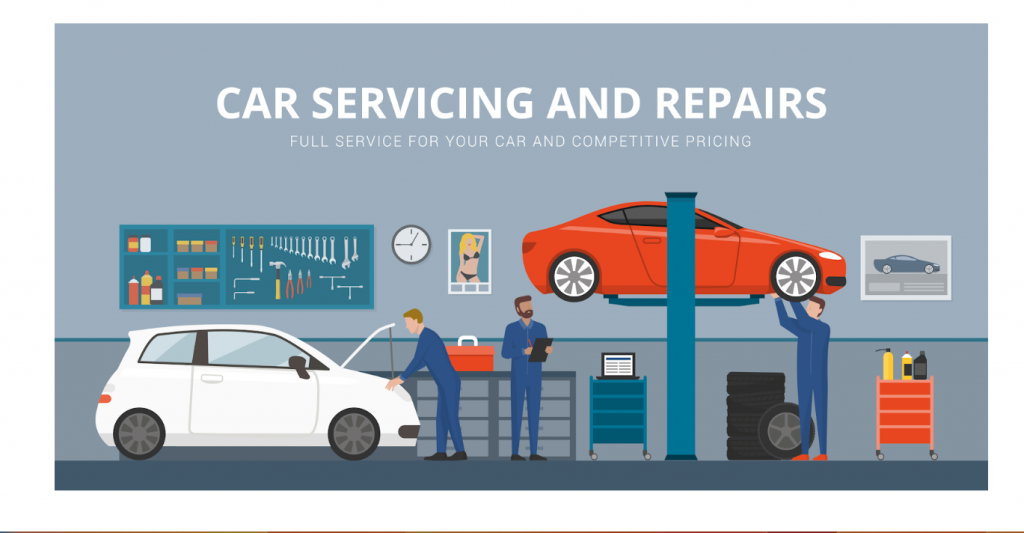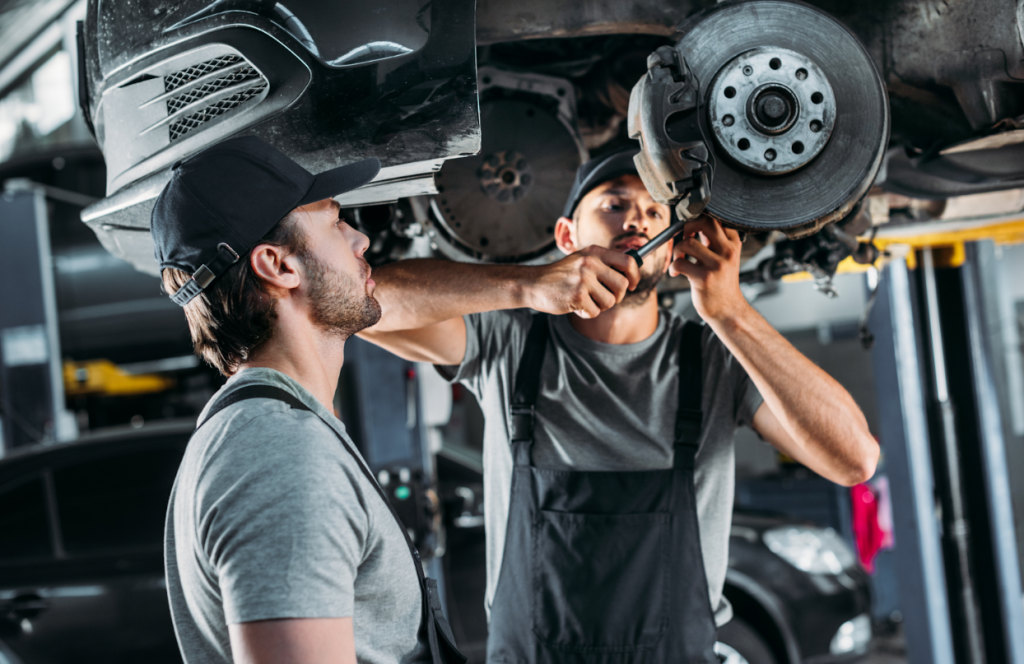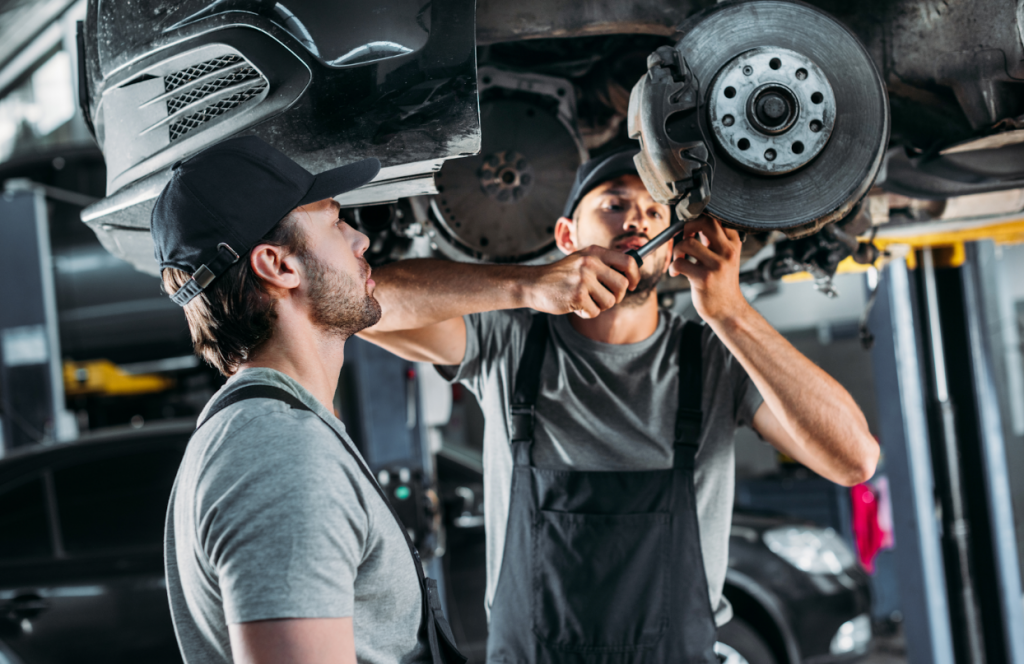Introduction
Are you the car owner who pulls their hair out when a strange bubbling noise appears from under the hood? Or do you hit your head against the steering wheel at every oil change, just trying to figure out what is required for routine maintenance? If so, fear no more – we have all the auto mechanic secrets needed to make even the most novice car drivers feel like experts. In this blog post, for example, we’ll share essential tips and tricks to ensure you keep your ride running smoothly and looking new! So put on those work gloves and get ready to dive into some savvy ways to extend the life of your vehicle.

Car Maintenance Tips
These tips can help car owners maintain their modern cars and save money on repairs. Here are six important secrets:
- Regular Maintenance:
Regular maintenance is crucial to keep your vehicle running smoothly on the roads. It ensures all your car components work efficiently and reduces the risk of major breakdowns. To maintain your car, start by checking its car battery and fluids, including the oil filter, cooling system, brake fluid, and power steering fluid. Changing the engine oil per your manufacturer’s recommendation is essential to avoid damaging the vehicle’s engine. Checking and changing your air filters periodically is important as well. Inspect tire pressure regularly and replace them when necessary for safety reasons. Brake pads should be checked frequently, too, since worn-out ones can cause road accidents. Finally, giving your car a regular wash and wax improves its appearance and protects it from corrosion and rust. By following these simple tips, you can ensure that your car runs optimally for years! - Check Tyre Pressure:
Maintaining proper tire pressure is a critical aspect of vehicle maintenance that drivers should prioritise. Checking tire pressure regularly can improve fuel efficiency, reduce wear on tires, and enhance overall driving safety. It is recommended to check tire pressure at least once a month and before long trips. One can find the appropriate tire pressure for their vehicle in the owner’s manual or on the driver-side doorjamb. Using a reliable tire pressure gauge, one can easily measure the air pressure levels and inflate or deflate as necessary to reach the recommended level. It is important to note that over-inflating or under-inflating tires can cause uneven wear and potentially lead to dangerous blowouts while driving. Therefore, ensuring proper tire pressure benefits your vehicle and keeps you and others safe. - Change Air Filters:
As a car owner, you’re responsible for ensuring your vehicle stays in top condition. One important aspect of car maintenance is regularly changing your air filters. These filters ensure that clean air enters your engine, preventing harmful particles from causing damage. But how often should you change them? It varies depending on your car’s make and model and driving habits. It’s recommended to check your owner’s manual, but a good rule of thumb is to change them every 12,000-15,000 miles or at least once a year. Neglecting to change your air filters can lead to reduced fuel efficiency, decreased engine performance, and even costly repairs. So, add this simple task to your car maintenance checklist and breathe easy knowing your engine is running smoothly. - Listen to Your Car:
An automobile professional like Mechanic East Brisbane cannot stress enough the importance of regularly checking and maintaining your vehicle. Listening to your car is one of the most effective ways to identify issues early and prevent costly repairs in the future. Routine maintenance tasks like oil changes, tire rotations, and brake inspections can help extend the life of your car’s engine and improve its overall performance. Additionally, paying attention to strange noises or vibrations while driving can provide valuable insight into potential problems with suspension or steering systems. Following a regular maintenance schedule and staying vigilant for any signs of trouble can ensure your car runs smoothly and safely for years. - Keep Fluid Levels in Check:
As a car owner, it’s important to keep the fluid levels in your vehicle in check. The fluids in your engine, transmission, brakes and power steering all play a critical role in the performance and longevity of your car. By regularly checking the levels and topping up as needed, you can ensure that your car runs smoothly and avoid potentially costly repairs down the road. Taking care of your car goes beyond just regular oil changes and tire rotations – keeping a close eye on your fluid levels is just as important. Follow these simple car maintenance tips, and you’ll be able to drive confidently, knowing your vehicle is in top shape. - Understand Your Warranty:
Getting a new car is exciting, but do you understand your warranty? It’s important to know what’s covered and what’s not so you don’t get stuck with unexpected expenses. Regular maintenance is essential to keep your car running smoothly and to avoid voiding your warranty. Simple tasks like changing your oil, checking your tire pressure, and replacing your air filter can make a big difference in extending the life of your car. It’s also important to keep track of your service history and follow the manufacturer’s recommended schedule. Don’t let a lack of knowledge about your warranty leave you in a lurch – take care of your car, and it will take care of you.
Remember, while these tips are valuable, it’s always recommended to consult a qualified car mechanic or refer to your car’s owner’s manual for specific instructions and guidelines.

FAQs
How can I prevent wear and tear on my vehicle’s paint and bodywork?
As a car owner, you take pride in your vehicle’s appearance. Nothing is more frustrating than seeing scratches or dents on the paint and bodywork. Wear and tear is inevitable whether your car is brand new or a few years old. However, you can take steps to prevent damage and preserve your car’s exterior. Regular car wash and waxing can protect your vehicle from the elements. Parking in a garage or shaded area will reduce exposure to harsh sun rays. A car cover can also protect from weather, debris, and scratches. These preventative measures ensure your car looks great and maintains its value for years.
What are the consequences of ignoring potential problems in my car?
Ignoring potential problems in your car can have serious consequences. At first, it may seem like a minor issue that can be put off until later, but it could cost you more in the long run. For example, if you notice strange noises coming from under the hood or your brakes aren’t functioning properly, it’s crucial to address these issues sooner rather than later. Ignoring them puts you and your passengers at risk of serious injury. Moreover, ignoring minor issues can lead to major breakdowns, leaving you stranded on the side of the road and potentially facing expensive repair bills. In short, taking care of your car and addressing potential problems as soon as they arise is key to ensuring your safety and avoiding unnecessary stress and expenses in the future.
How often should I take my car in for maintenance checkups?
Generally, taking your car to repair shops for maintenance checkups every 6 months or 5,000 miles is recommended, whichever comes first. However, this can also depend on the make and model of your vehicle and the type of driving conditions you experience regularly. For example, if you frequently drive in stop-and-go traffic or extreme weather conditions, such as excessive heat or cold, you may need to schedule more frequent checkups to ensure your car remains in optimal condition. Additionally, paying attention to warning signs such as strange noises or dashboard indicators can prompt you to schedule an appointment with a professional mechanic sooner than your usual maintenance interval. Ultimately, it is important to prioritise regular maintenance checks to maintain the longevity and performance of your vehicle over time.
Conclusion
Car maintenance is something that shouldn’t be taken lightly. Not only can it help ensure your vehicle runs safely and efficiently, but it also avoids expensive repairs down the line. In addition to understanding a few auto mechanic secrets every car owner should know, always ask questions if anything isn’t clear and have a reputable mechanic work on your car instead of tackling automobile maintenance alone. Remember an important safety step: regularly checking the car’s tires for proper inflation. Having good tires with the correct air pressure helps you avoid accidents but also helps ensure excellent fuel efficiency and reduces wear-and-tear on the engine, brake pads, and other vehicle components. Taking steps like these will keep you safe while preserving your vehicle’s longevity—great news for drivers everywhere!
Autobiography
Eric Reyes is a passionate thought leader, having been featured in 50 distinguished online and offline platforms. His passion and knowledge in Finance and Business made him a sought-after contributor providing valuable insights to his readers. You can find him reading a book and discussing current events in his spare time.


